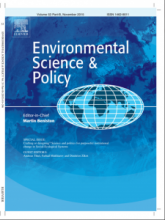The role of fish and fisheries in recovering from natural hazards: Lessons learned from Vanuatu
Coastal fisheries provide staple food and sources of livelihood in Pacific Island countries, and securing a sustainable supply is recognised as a critical priority for nutrition security. This study sought to better understand the role of fish for Pacific Island communities during disasters and in disaster recovery. To evaluate community impacts and responses after natural disasters, focus group discussions were held with men and women groups at ten sites across Shefa, Tafea, Malampa and Sanma provinces in Vanuatu. The combined impacts of category 5 Tropical Cyclone Pam (TC-Pam) in March 2015 and prolonged El-Niño induced drought have had a profound impact across much of Vanuatu. Terrestrial systems had been disproportionately impacted with substantial shortages in drinking water, garden crops, cash crops and damage to infrastructure. Localized impacts were noted on marine environments from TC-Pam and the drought, along with an earthquake that uplifted reef and destroyed fishing grounds in Malampa province. Communities in Malampa and Shefa provinces also noted a crown-of-thorns outbreak that caused coral mortality. The significant reduction in terrestrial-based food and income generation capacity generally led to increased reliance on marine resources to cope and a shift in diets from local garden food to rice. However, limited market access, lack of fishing skills and technology in many sectors of the community reduced the capacity for marine resources to support recovery. A flexible management approach allowed protected areas and species to be utilized as reservoirs of food and income when temporarily opened to assist recovery. These findings illustrate that fish and fisheries management is at the center of disaster preparedness and relief strategies in remote Pacific Island communities. High physical capital (e.g. infrastructure, water tanks and strong dwellings) is key for disaster preparedness, but supporting community social capital for the purpose of natural resource management and human capital for diverse adaptation skills can also improve community resilience. Recognizing the humanitarian value that well managed fisheries resources and skilled fishers can play to disaster relief adds another dimension to the imperative of improving management of coastal fisheries and aligning policies across sectors.
Files
Document Tabs

